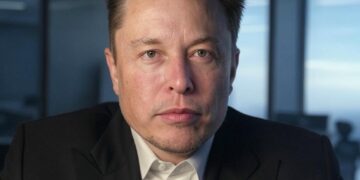The symbolically resonant agreement still has yet to be finalised, but it suggested that Trump was still able to negotiate with other countries after his vast set of tariffs stoked fears around the world of an economic downturn and higher inflation.
The announcement provided a political victory for UK Prime Minister Keir Starmer and offered a degree of validation for Trump’s claims that his turbulent approach to trade may be able to rebalance the global economy on his preferred terms.
The US president talked up the agreement to reporters from the Oval Office, even as the fine print remains in flux.
“The final details are being written up,” Trump told reporters. “In the coming weeks, we’ll have it all very conclusive.”
The president said that the agreement would lead to more beef and ethanol exports to the UK, which would also streamline the processing of US goods through customs.
US Commerce Secretary Howard Lutnick said the baseline 10 percent tariffs would stay in place, while UK officials said that Trump’s auto tariffs would go from 27.5 percent to 10 percent on a quota of 100,000 vehicles, and the import taxes on steel and aluminum would go from 25 percent to zero.
Starmer, speaking over the phone to Trump, stressed the importance of the relationship between the two countries as the anniversary of the World War II victory in Europe was being commemorated.
The US already runs a trade surplus with the UK, making it a bit easier to find common ground as Trump has staked his tariffs on specifically eliminating the annual trade deficits with multiple nations he says have taken advantage of the US. (AP)


















